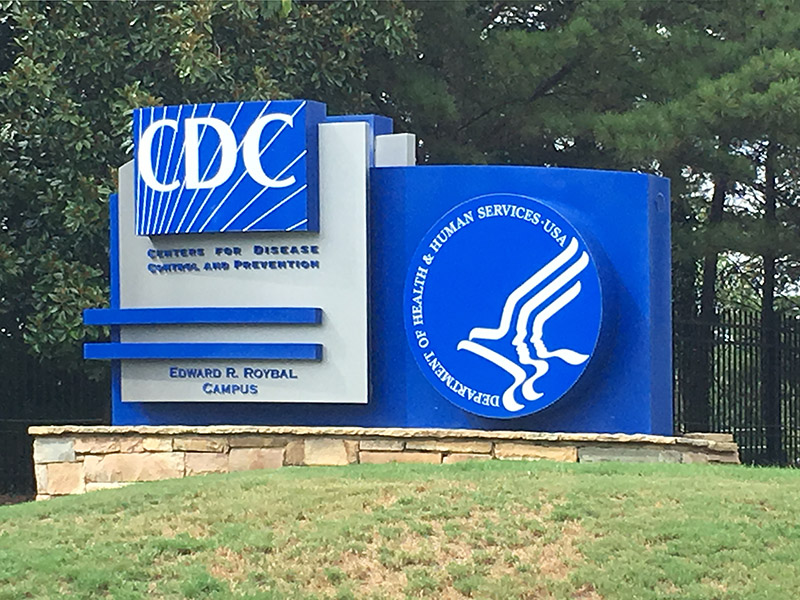Positive Portrayals: The Infection Monologues
A decade after its debut, The Infection Monologues co-creator Alex Garner still sees a need for modern-day HIV stories
“Up until this Charlie Sheen stuff happened, I would have said that society has gotten better,” says Alex Garner. “But the reaction to that discouraged me.”
The founding editor of Positive Frontiers, Garner was troubled by the negative reactions to Sheen’s announcement that he’d been HIV-positive for several years. “People immediately leapt to this notion of criminality and assigning blame — and that’s where stigma comes from,” he says. “It’s also very easy for people to either slut-shame or talk about prostitutes and pornstars, and how they’re the ones that people get the disease from.”

Sheen himself didn’t play that sexually repressing blame game, instead taking responsibility for his actions and displaying a nearly unprecedented level of maturity. His respectable handling of the situation was in contrast not only to his attackers, especially one-time co-star Jenny McCarthy, but also to another former television star who stoked controversy just a few months ago when he, too, revealed his HIV-positive status. But Danny Pintauro went overboard in detailing and theorizing how his seroconversion might have occurred, in ways that strained credulity and passed blame.
“My instant reaction was, ‘We never have to explain how we got it, because that perpetuates stigma,'” Garner says. “When you get the flu, you don’t pretend to know exactly who gave it to you. You just get better.”
Garner says that the sensational reaction to Sheen’s status is indicative of a relative lack of attention and awareness in the broader, straight culture to the changing face of HIV/AIDS. Older adults still remember it as a death sentence, or one that involves lots of pain and suffering and adverse medical reactions. “There’s this fear still attached to it because people haven’t evolved from their 20-year-old perception of what it was.”
But admittedly, even the Pintauro incident isn’t helped by the current state of play: You can point to very few healthy, out and proud HIV-positive people, be they celebrities or fictional characters, in today’s mainstream society and pop culture. The situation is essentially unchanged from a decade ago, when Garner was motivated by the same lack of positive representation to develop The Infection Monologues with sociologist Eric Rofes. “I wanted to be able to convey my experience with HIV,” says Garner, who has been living with the virus since 1996.
Armed with his own survey of gay men who had seroconverted since 2000, Rofe proposed using the research to develop full characters offering multiple perspectives on the modern-day undetectable man, modeled after Eve Ensler’s The Vagina Monologues. But Garner insisted that the show had to be funny. “I didn’t want it to be a heavy, maudlin approach — a drama about HIV,” Garner says. “Because we had too many of those already.”
Instead of “overwhelming sadness,” Garner worked with other poz contributors to find the humor in common situations, from that fateful phone call when the doctor refers to “an unexpected finding,” to the rejection from a prospective HIV-negative suitor upon revealing one’s status. Even the most traumatic or embarrassing situations have their moments of laughter in hindsight.
Next week, Garner will stage a 10th anniversary reading of The Infection Monologues in a co-presentation with the National Minority AIDS Council, the DC Center, and the Human Rights Campaign. In addition to Garner, other performers at the reading include Brant Miller of the DC Center, HIV activist Mark S. King of My Fabulous Disease, Shawn Jain of Whitman-Walker Clinic and local actors Cedric Gum and Samy Hayder Younes.
Garner has not made many changes to the script in the intervening decade. Most notable has been the rise of treatment as prevention for HIV-negative people. “PrEP has been a game changer,” Garner says. “It’s shifted the whole stigma around HIV.” To the point that there’s far more communication and interaction, including sexual, between HIV-positive and HIV-negative men now than ever before. The reading will be “really instructive,” he says, to think about how he might update the play to include experiences with PrEP and try to capture “this really exciting period around HIV.”
And on that score, Garner sees at least one affirming mainstream portrayal of today’s reality: the ABC drama How To Get Away With Murder features an HIV-positive, gay, supporting character and has included discussion of PrEP for his HIV-negative sexual partners. “I appreciate that that poz character has retained his sexuality,” Garner says. “That’s such an important part of our humanity.”
The 10th Anniversary Staged Reading of The Infection Monologues is Wednesday, Dec. 2, from 6 to 9 p.m., at HRC, 1640 Rhode Island Ave. NW. Food and beverages will be provided at this free World AIDS Day Event. Call 800-777-4723 or visit hrc.org for more information.
Support Metro Weekly’s Journalism
These are challenging times for news organizations. And yet it’s crucial we stay active and provide vital resources and information to both our local readers and the world. So won’t you please take a moment and consider supporting Metro Weekly with a membership? For as little as $5 a month, you can help ensure Metro Weekly magazine and MetroWeekly.com remain free, viable resources as we provide the best, most diverse, culturally-resonant LGBTQ coverage in both the D.C. region and around the world. Memberships come with exclusive perks and discounts, your own personal digital delivery of each week’s magazine (and an archive), access to our Member's Lounge when it launches this fall, and exclusive members-only items like Metro Weekly Membership Mugs and Tote Bags! Check out all our membership levels here and please join us today!






















You must be logged in to post a comment.